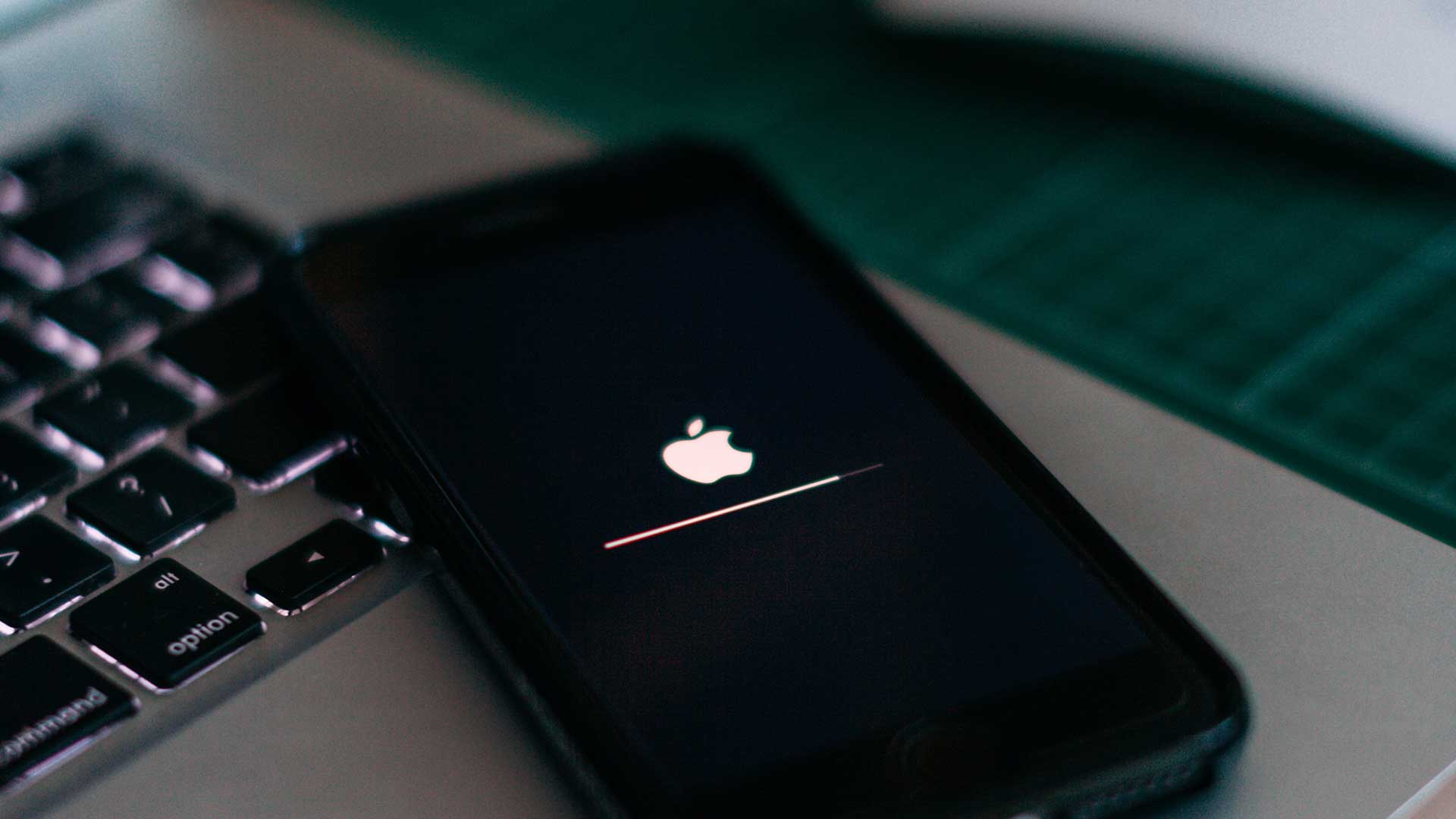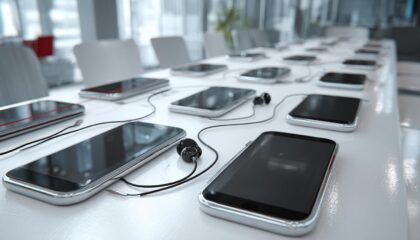Advisor
Android or IOS – Which is the right operating system for you?
Der große iOS vs. Android Vergleich – alle Fakten im Check
Android oder IOS, das ist die große Frage. Das sind die beiden dominierenden Betriebssysteme im Smartphone-Markt. In Bezug auf Marktführerschaft hat Android einen größeren Anteil, da es auf einer Vielzahl von Geräten verfügbar ist, während iOS exklusiv auf Apple-Geräten läuft. In Bezug auf Datenaustausch und Benutzerfreundlichkeit haben beide ihre Vor- und Nachteile. iOS bietet eine bessere Datenzugriff und Synchronisierung mit Windows PCs, da es nahtlos mit der iTunes-Software integriert ist. Android hingegen bietet mehr Freiheit in Bezug auf den Datenaustausch und erlaubt es Benutzern, Dateien direkt über USB zu übertragen.
Die Stärken von iOS liegen in seiner Benutzerfreundlichkeit und der Integration von Hardware und Software, während Android für seine Anpassungsfähigkeit und Vielseitigkeit bekannt ist. Allerdings hat iOS den Nachteil, dass es weniger anpassungsfähig ist und nur auf teuren Apple-Geräten läuft, während Android anfälliger für Sicherheitsprobleme sein kann und von unterschiedlichen Herstellern angeboten wird. Letztendlich hängt die Wahl zwischen iOS und Android von den individuellen Präferenzen und Anforderungen des Benutzers ab.
Warum iOS sicherer als Android sein kann: Ein Vergleich der beiden Betriebssysteme
Basierend auf den Informationen aus unterschiedlichsten Quellen gilt iOS als das sicherere Betriebssystem im Vergleich zu Android.
In Bezug auf Sicherheit bietet iOS eine geschlossene Plattform mit strengen Kontrollen über den App Store und strengen Richtlinien für App-Entwickler. Updates werden direkt von Apple bereitgestellt und können schnell auf allen unterstützten Geräten installiert werden, was die Sicherheit gewährleistet.
Im Gegensatz dazu ist Android aufgrund seiner offenen Natur anfälliger für Malware und Sicherheitslücken. Updates werden von den Geräteherstellern und Mobilfunkanbietern bereitgestellt, was zu Verzögerungen bei der Verteilung führen kann. Der Google Play Store hat weniger strenge Richtlinien und ermöglicht potenziell riskantere Apps.
Software-Updates für Apple und Android Geräte
Apple-Geräte wie das iPhone und iPad erhalten regelmäßig Software-Updates, um die Sicherheit und Leistung zu verbessern. Dies geschieht über das iOS-Betriebssystem, das häufige Aktualisierungen erhält, um Sicherheitslücken zu schließen. Apple ist bekannt für seine schnelle Update-Politik und bietet auch älteren Geräten noch lange Zeit Updates an.
Bei Android-Geräten hängt die Update-Politik von den verschiedenen Herstellern ab. Google, als Entwickler von Android, bietet regelmäßige Sicherheitsupdates für seine eigenen Pixel-Geräte an. Andere Hersteller wie Samsung, Huawei und Xiaomi haben unterschiedliche Update-Politiken, wobei einige regelmäßige und langfristige Updates anbieten, während andere nur begrenzte Unterstützung bieten.
Sowohl Apple als auch Android-Geräte ermöglichen es den Nutzern, automatische Updates einzustellen, um sicherzustellen, dass ihre Geräte stets auf dem neuesten Stand sind und vor potenziellen Sicherheitsrisiken geschützt sind. Dies unterstreicht die Bedeutung von regelmäßigen Updates für die Sicherheit und den Schutz persönlicher Daten.
Wie sich die Bedienung von iPhones und Android-Geräten unterscheidet
Die Bedienung von iPhones und Android-Geräten unterscheidet sich in vielerlei Hinsicht. Apple bietet eine einheitliche Nutzererfahrung mit einer intuitiven Benutzeroberfläche, die sich über verschiedene Geräte hinweg konsistent anfühlt. Im Gegensatz dazu ist die Bedienung von iOS restriktiver als bei Android, da Apple eine strenge Kontrolle über die angebotenen Funktionen und Anpassungsmöglichkeiten ausübt.
Auf der anderen Seite bietet Android eine personalisierbare Software, die es den Nutzern ermöglicht, ihr Gerät nach ihren eigenen Vorlieben anzupassen. Dies umfasst die Anpassung von Widgets, Startbildschirmen und die Verwendung von alternativen Apps für Standardfunktionen. Darüber hinaus bietet der Google Play Store eine vielfältige Auswahl an Apps, die es den Nutzern ermöglicht, ihr Gerät nach ihren individuellen Bedürfnissen anzupassen.
Ein weiterer Unterschied besteht darin, dass Android-Nutzer die Möglichkeit haben, das Betriebssystem komplett anzupassen, indem sie alternative ROMs installieren und verschiedene Einstellungen ändern können, während iOS-Nutzer diese Freiheit nicht haben.
Vergleich der Koste für IOS- und Android-Geräte: Wie man das beste Preis-Leistungs-Verhältnis findet
Die Kosten für die Hardware und das Zubehör von iOS-Geräten wie dem iPhone und Android-Geräten wie Samsung Galaxy können variieren. Generell sind die Anschaffungskosten für iOS-Hardware tendenziell höher als die für Android-Hardware. iPhones und die Tablets von Apple sind bekannt für ihre hohe Wertbeständigkeit, was bedeutet, dass sie auch nach Jahren noch einen relativ hohen Wiederverkaufswert haben. Auf der anderen Seite bieten Android-Geräte oft eine größere Preisspanne, von günstigen Einsteigergeräten bis hin zu teureren High-End-Modellen.
Das Preis-Leistungs-Verhältnis kann sich je nach Modell und Marke stark unterscheiden. iOS-Geräte gelten oft als hochwertig und bieten eine gute Leistung, aber zu einem entsprechend hohen Preis. Android-Geräte bieten hingegen eine breitere Auswahl an Preisen und Leistungen, um den individuellen Bedürfnissen gerecht zu werden. Letztendlich hängt die Wahl zwischen iOS und Android auch von persönlichen Vorlieben, Budget und geplantem Einsatz ab.
Welches Betriebssystem ist am besten für Sie? Android vs. IOS
Bei der Entscheidung für ein Betriebssystem ist es wichtig, die individuellen Vorlieben und Bedürfnisse des Nutzers zu berücksichtigen. Android eignet sich gut für Nutzer, die anpassungsfähige und individualisierbare Funktionen schätzen und die Vielfalt an verfügbaren Geräten und Preisklassen zu schätzen wissen. iOS hingegen ist ideal für Nutzer, die eine benutzerfreundliche und sicherheitsorientierte Plattform bevorzugen, die nahtlos mit anderen Apple-Geräten integriert ist.
Android bietet eine breite Auswahl an Geräten und Anpassungsmöglichkeiten, aber die fragmentierte Natur des Betriebssystems kann zu Sicherheitsrisiken und einer begrenzten Nutzererfahrung führen. iOS hingegen bietet eine robuste und intuitive Benutzeroberfläche sowie strenge Sicherheitsmaßnahmen, aber die Auswahl an Geräten ist begrenzt und die Preise sind oft höher.
Vergleich von Siri und Google Assistant: Leistung und Datenschutz
Android oder IOS, beide haben einen Sprach Assistant. Siri und Google Assistant sind zwei der führenden virtuellen Assistenten auf dem Markt, die sich in ihrer Leistungsfähigkeit und ihrem Datenschutz unterscheiden. Google Assistant hat Zugang zu einem umfassenden Wissensschatz und kann auf eine Vielzahl von Informationen und Datenquellen zugreifen, was seine Leistungsfähigkeit in Bezug auf die Beantwortung von Fragen und das Durchführen von Aufgaben verbessert.
Im Gegensatz dazu legt Siri den Schwerpunkt auf einen hohen Datenschutz. Dank der Neural Engine von Apple kann Siri personalisierte Funktionen auf dem Gerät selbst ausführen, was die Privatsphäre der Nutzer schützt. Siri betont außerdem seine starke Datensicherheit und versichert den Nutzern, dass ihre persönlichen Daten geschützt sind.
Somit besteht ein wesentlicher Unterschied in der Leistungsfähigkeit der beiden virtuellen Assistenten, wobei Google Assistant aufgrund seines Zugangs zu einem großen Wissensschatz punktet, während Siri sich auf einen hohen Datenschutz und die Sicherheit der persönlichen Daten der Nutzer konzentriert.
Fazit: Android vs. iOS
Die Unterschiede zwischen Android und iOS liegen vor allem in ihrer Benutzeroberfläche, Anpassungsmöglichkeiten, Verfügbarkeit von Apps und Updates sowie Sicherheitsaspekten. Android bietet eine größere Vielfalt an Geräten und Anpassungsmöglichkeiten, während iOS für seine Benutzerfreundlichkeit und Sicherheit bekannt ist.
Eine Empfehlung basierend auf den Vor- und Nachteilen beider Betriebssysteme hängt von den individuellen Präferenzen und Bedürfnissen ab. Android eignet sich gut für Nutzer, die eine größere Gerätevielfalt und Anpassungsmöglichkeiten wünschen, während iOS für Anwender geeignet ist, die Benutzerfreundlichkeit und Sicherheit priorisieren.
Insgesamt sollten Nutzer ihre Entscheidung basierend auf ihren individuellen Präferenzen und Anforderungen treffen, da beide Betriebssysteme ihre eigenen Vor- und Nachteile haben.
Read more - You may also be interested in
Would you like to delve deeper into the topic or discover similar content? Below, we have compiled three additional articles for you that are thematically related to this article. These may also be relevant and interesting for your company.













